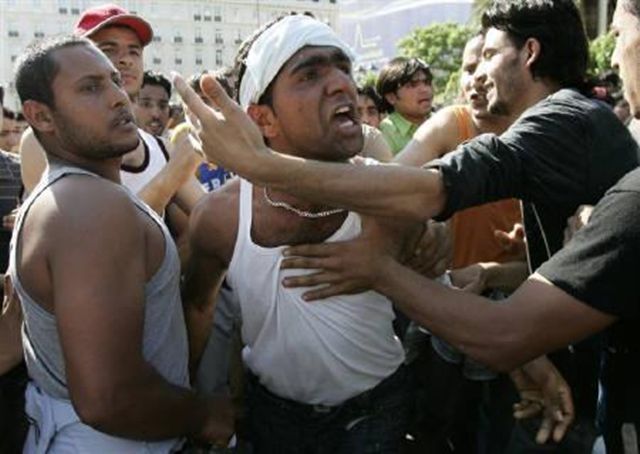
Islamist Terrorism in Europe: Could Greece Be Next?
Publication: Terrorism Monitor Volume: 8 Issue: 37
By:

Radical Islamist groups, including al-Qaeda, have the means and resources to target European citizens both in Europe and abroad. However, Islamist terrorist groups have not yet directly hit Greece. Why is that the case?
From a strategic standpoint, Greece is not a major player in the “war on terrorism.” The country has not deployed any troops in Iraq and the Greek troops currently stationed in Afghanistan participate mainly in low risk engineering and medical activities as well as training missions (To Bhma Online [Athens], August 31). Furthermore, there is a cultural explanation. Modern Greeks, Afghans and Palestinians share a common history and mythology that can be traced back to Alexander the Great. [1] Al-Qaeda leaders have always shown an interest in exploiting the mythology of civilizations and have used soft power to gain a strategic advantage against their adversaries.
Thus, in theory, an attack against Greece lacks the symbolism and strategic interest that al-Qaeda seeks for the construction of its own mythology, identity and propaganda. However, these observations do not necessarily erase the possibility that radical Islamic groups are trying to gain a foothold in Greece.
Indeed, there is a pragmatic expectation that radical Islamist groups could participate in low-risk assignments and psychological operations (such as recruitment, funding, propaganda and training) that would not be easily detected by Greek or other authorities. The Greek context facilitates such operations for a number of reasons:
• Geographical proximity to countries that export radicalism
• Illegal migration and porous borders
• Social unrest
• A growing Muslim community
• Indigenous terrorist networks
• Corruption in the private and public sectors
These are just some of the pieces of the puzzle that make this scenario ever more realistic (see Terrorism Monitor, August 2, 2007).
However, is there hard evidence to support the assertion that such a secretive radical organization exists in Greece? Confidential reports and interviews with informants suggest that there is fire behind the smoke. [2]
Various intelligence sources conclude that the Greek immigration policy has deterred many radical Islamist networks from establishing permanent ties in the country. A security brief issued during the 2004 Olympic Games noted, “The legal environment was for many years an obstacle for the growth and development of organized networks that could operate overtly or covertly using religious and cultural organizations and NGOs as legitimate fronts.” This policy, however, unintentionally leads many groups to go underground.
The Greek secret service has mapped a transnational network of radicals that has been developing in Greece over the years. Field informants indicate that this semi-legal web spreads across five different communities, including:
• Mosques and local Muslim communities
• Humanitarian organizations and NGOs
• Islamic cultural centers in Europe
• Foreign political, economic and religious elites
• International Islamist terrorist organizations
The key members of this network (referred to as “The Union of Mosques” or “The Union of Imams”) have military training and combat experience and are well connected with terrorist groups, foreign governments and the Muslim Diaspora in Europe (mainly in Britain, Italy and France). They use criminal activities to finance and facilitate their ideological objectives. The most noticeable illegal activities they conduct are passport forging, arms trafficking, people smuggling and drug trafficking. Finally, according to the same sources, the network has developed an internal structure to support fundraising, recruitment and counter intelligence activities.
The confluence of actors and structures reported in the intelligence files indicates strong links with other European capitals. This conclusion gains additional support when cross-referencing surveillance reports and open source intelligence. Arrests of Islamist radicals in Europe will often trigger changes in the everyday routines of some members of the network in Greece. Members of the network were, for instance, advised to change their appearance, shave their beards, move to a friendly country and avoid talking openly when meeting in mosques or in other public places. Changes in the modus operandi of the network were also recorded in the immediate aftermath of the London and Madrid bombings.
A number of economic, political and cultural issues could have a direct impact on the security of Greece. These include:
• Liberalization of immigration laws
• Stronger bilateral economic and military relations between Israel, Cyprus, Greece and the United States (see Hurriyet, September 29)
• Oil extraction in the Aegean Sea
• Radicalization of Turkish Muslims (see Ta Nea [Athens], June 16; To Vima tis Kiriakis [Athens], May 30)
• The political role of the Muslim minority in Greece and the growing legal/illegal Muslim community in Athens and Thessaloniki
• The Macedonian name dispute
An attack is unlikely to occur in the current situation. However, future developments on the aforementioned political, socio-cultural and economic issues could change this dynamic and activate or radicalize Islamist networks in Greece. So far, the network based in Greece performs mainly non-violent activities, but provides support for other groups based in larger European cities. Future political decisions could tilt the network toward more militant activities.
Notes:
1. Early Muslim scholars for example, believed that Dhul-Qarnain (“the two-horned”), a pre-Islamic figure mentioned in the Koran (XVIII, 83-98), was Alexander the Great. See: R. A. Anderson, “Alexander’s Horns,” Transactions and Proceedings of the American Philological Association 58, (1927) pp. 100-122.
2. The documents were supplied by a retired officer of the Greek secret service.
Interviews with high ranking officers from the police and the secret services were conducted in Athens in the summer of 2008 and in the fall of 2009 for a more updated assessment.





